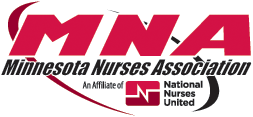The Impact of Tax Exemptions on Public Services
In Minnesota, three out of four hospitals are not-for-profit organizations, which, in exchange for tax exemptions, are expected to provide charity care to low-income individuals. Many of these hospitals are falling short of their obligations, especially those within the Allina, Fairview, and Essentia systems. With hospitals receiving millions in tax exemptions but offering only a fraction of charity care, vital public services like healthcare and education are suffering and communities directly affected. The growing charity care gap, coupled with large executive salaries and lower staffing levels, raises concerns about the fairness of tax exemptions for not-for-profit hospitals, especially when vulnerable communities, caregivers, and educators are impacted.Hospital Charity Care Shortfall
- Tax Exemptions vs. Charity Care: Hospitals belonging to Twin Cities and Duluth-based systems received $3.9 billion in tax exemptions from 2018-2022 but provided only $607.1 million in charity care, creating a $3.3 billion shortfall.
- Financial Discrepancies: Despite receiving substantial tax exemptions, hospitals have fallen short of fulfilling their charity care obligations.
- Executive Compensation Concerns: Health system executives are receiving excessive compensation, even while benefiting from tax-exempt status.
Worsening Healthcare Inequities
- Disproportionate Impact on Vulnerable Communities: Communities of color, low-income, and rural areas are most affected by tax exemptions and healthcare inequities.
- Worsening Access to Care: Tax exemptions contribute to reduced access to healthcare, deepening existing disparities.
- Exacerbating Medical Debt and Closures: Lower charity care contributions lead to increased medical debt and the closure of essential services in underserved areas.
Effects on Public Services & Education
- Minnesota School District Budget Deficits: St. Paul, Minneapolis, and Duluth Public Schools are facing significant budget shortfalls, with St. Paul facing $115 million, Minneapolis $75.5 million, and Duluth $5 million.
- Impact on Services and Staffing: These deficits may result in cuts to essential services and staffing reductions, affecting students, educators, and communities.
- Funding Solutions and Challenges: Local taxpayers may need to fill the funding gaps, or schools may face continued service cuts, impacting education quality.
